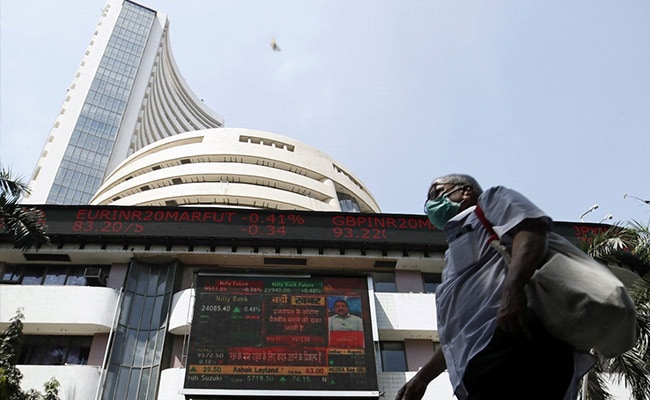Stock Market India: Sensex drops nearly 100 points at open on Monday
Indian equity benchmarks started the week on a cautious note, after a dramatic rally on Friday as investors review and reposition amidst improved market risk sentiment.
The BSE Sensex index after opening lower, rises 76.82 points to 61,871.86 in early volatile trading session, and the broader NSE Nifty was up 0.21 per cent at 18,387.35.
Both benchmark indices extended their rally from Friday, when they touched a 52-week high.
Still, domestic retail inflation data, due after the trading day’s hours, will likely keep the markets in check through today’s session, despite the widespread optimism for global risk assets.
Last week, lower-than-expected US inflation data for October sparked a dramatic repricing of the Federal Reserve’s policy course for the coming year, crashing the dollar and igniting a massive rally in equities, risky assets, and bonds.
The Nasdaq rose 8 per cent for the week, the two-year Treasury yield sank 30 basis points on Friday, its greatest drop since 2008, and the dollar fell 4 per cent, astonishingly its fourth-biggest weekly slide since the period of freely floating exchange rates began more than 50 years ago.
But with investors presumably still reeling from one of the most dramatic weeks in recent market history, Asian markets opened relatively flat on Monday.
After rising 7.7 per cent the previous week, the MSCI’s broadest index of Asia-Pacific equities outside of Japan increased by 0.2 per cent.
South Korea’s stock market gained 0.3 per cent, while Japan’s Nikkei stayed unchanged. Nasdaq futures were down 0.3 per cent, while S&P 500 futures fell 0.2 per cent.
What did not help was Governor of the Federal Reserve Christopher Waller’s remark on Sunday that the US inflation figure from last week was “only one data point” and that additional readings of a similar nature were required to demonstrate that inflation was dropping.
However, Mr Waller added that the Fed might begin considering hiking at a slower rate.
“The CPI downside surprise aligns with a broad range of indicators pointing to a downshift in global inflation that should encourage a moderation in the pace of monetary policy tightening at the Fed and elsewhere,” Bruce Kasman, Head of Economic Research at JPMorgan, told Reuters.
“This positive message needs to be tempered by the recognition that downshifts in inflation will be too little for central banks to declare mission-accomplished, and more tightening is likely on the way.”
Traders would also watch to see if the significant advance in Chinese stocks might continue after news that regulators had urged banking institutions to provide extra assistance to struggling real estate developers.
Blue chips increased on Friday due to numerous COVID restriction modifications, even though China reported more cases over the weekend.
The coming week is jam-packed with the usual flood of economic data, and policymaker speeches as market participants recoup, review, and reposition.
Additionally, on Monday at the G20 summit in Bali, President Joe Biden of the United States and President Xi Jinping of China will meet face-to face-for the first time since the US President took office.
It’s reasonable to say that the two superpowers’ ties are chilly, so any indication of thawing might bolster the upbeat market mood that has been spreading since last week.
Featured Video Of The Day
Bank of England Delivers Biggest Interest Rate Hike In 30 Years



